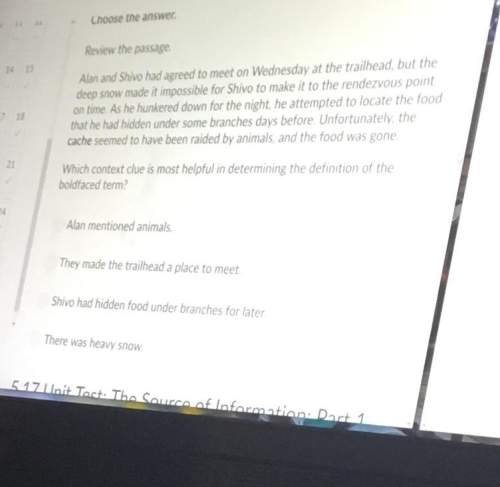
English, 09.09.2020 19:01 hannamcbrayer1
1 Select the correct answer. What opinion about Russian society does Leo Tolstoy express in this excerpt from The Death of Ivan Ilyich? The awful, terrible act of his dying was, he could see, reduced by those about him to the level of a casual, unpleasant, and almost indecorous incident (as if someone entered a drawing room defusing an unpleasant odour) and this was done by that very decorum which he had served all his life long. He saw that no one felt for him, because no one even wished to grasp his position. Only Gerasim recognized it and pitied him. And so Ivan Ilyich felt at ease only with him. He felt comforted when Gerasim supported his legs (sometimes all night long) and refused to go to bed, saying: "Don't you worry, Ivan Ilyich. I'll get sleep enough later on," or when he suddenly became familiar and exclaimed: "If you weren't sick it would be another matter, but as it is, why should I grudge a little trouble?" Gerasim alone did not lie; everything showed that he alone understood the facts of the case and did not consider it necessary to disguise them, but simply felt sorry for his emaciated and enfeebled master. Once when Ivan Ilyich was sending him away he even said straight out: "We shall all of us die, so why should I grudge a little trouble?"-expressing the fact that he did not think his work burdensome, because he was doing it for a dying man and hoped someone would do the same for him when his time came. O A. The peasant class in nineteenth-century Russia was full of honest and compassionate people. OB. Educated professionals gained influence in Russian society in the nineteenth century. C. In the nineteenth century, middle-class Russians were rich and well-educated. OD. Peasants more readily accepted unpleasant facts of life, while the middle class tried to deny them.

Answers: 2


Another question on English

English, 22.06.2019 00:00
Time is not always change. time can also mean continuity, and it can mean keeping acknowledged truths in mind despite differences in circumstances.there is no better example of this in things fall apart than the retellings of the proverb about the bird named eneke, the language in both retellings is almost identical despite the length of time that has passed between their repetitions. in comparing the usages of the same proverb, achebe allows his readers to note the similarities and differences between the situations, and he them understand how this story can be applied to their own lives.
Answers: 3

English, 22.06.2019 01:00
Pls excerpted from "hope is the thing with feathers" by emily dickinson [2] and sweetest—in the gale—is heard— and sore must be the storm— that could abash the little bird that kept so many warm— [3] i've heard it in the chillest land— and on the strangest sea— yet, never, in extremity, it asked a crumb—of me. in the last stanza, the author writes that the little bird “never … asked a crumb of me.” which type of figurative language is evident in these lines? a. onomatopoeia b. alliteration c. assonance d. personification
Answers: 2

English, 22.06.2019 03:30
What element of medieval literature does the disappearance of the sword into the lake represent?
Answers: 1

English, 22.06.2019 06:10
Select all of the correct answers. what arguments does susan b. anthony make in this excerpt from her speech?
Answers: 3
You know the right answer?
1 Select the correct answer. What opinion about Russian society does Leo Tolstoy express in this exc...
Questions

English, 09.12.2021 23:20

English, 09.12.2021 23:20





Engineering, 09.12.2021 23:20

Mathematics, 09.12.2021 23:20


Mathematics, 09.12.2021 23:20


Mathematics, 09.12.2021 23:20


Mathematics, 09.12.2021 23:20



Mathematics, 09.12.2021 23:20

Mathematics, 09.12.2021 23:20

Arts, 09.12.2021 23:20




